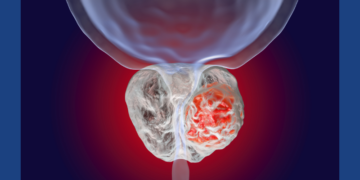Dec 1, 2024 Story by: Editor
Lung cancer continues to be the leading cause of cancer-related deaths in New Jersey, disproportionately affecting Black residents, according to a report released Tuesday by the American Lung Association.
New Jersey ranks ninth nationwide in the five-year survival rate for lung cancer, a figure that has risen by 21% due to earlier diagnoses and improved treatments. However, the annual State of Lung Cancer report highlighted significant racial disparities, with Black residents in New Jersey having a five-year survival rate of 22.6%, compared to 32.5% for White residents.
These statistics reveal a broader gap than the national averages, where survival rates are 28.5% for White patients and 25.5% for Black patients. “That’s one of the things we noticed in New Jersey, that [the gap] was wider,” noted Zach Jump, senior director of nationwide epidemiology and statistics research at the association. “Anytime you see something like this, it’s a lot of the classic culprits: historical inequalities, exposure to tobacco smoke, and air pollution.”
Despite its advanced health networks, New Jersey continues to grapple with racial disparities in healthcare access and outcomes. Black residents face higher rates of death from several conditions, including asthma, diabetes, and heart disease, compared to their Hispanic, Asian, and White counterparts.
Addressing Racial Disparities in Healthcare
Efforts to bridge these gaps have gained momentum, particularly in maternal health and birth outcomes. On Tuesday, the Rutgers School of Medicine announced a campaign aimed at reducing health inequities.
“By centering health equity in every aspect of the new Rutgers School of Medicine, we will produce the next generation of doctors who will be a part of advancing health equity in the communities we serve,” said Robert L. Johnson, dean of New Jersey Medical School. The institution is merging with Robert Wood Johnson Medical School to form the new Rutgers School of Medicine.
Minimizing Lung Cancer Risks
New Jersey has fared better than many states in mitigating some leading causes of lung cancer. For instance, only 10.4% of residents smoke, compared to the national average of 12.9%. Additionally, about 10% of radon tests in New Jersey exceeded federal standards, placing the state eighth nationwide.
Nevertheless, air pollution remains a concern. Although diesel engine improvements and coal plant closures have reduced pollution, areas in North Jersey near New York City and South Jersey near Philadelphia continue to experience high smog levels, ranking among the worst metropolitan areas.
Targeted Treatments and Legislative Support
The report also emphasized the need for targeted treatments, using the findings to advocate for a bill under consideration in Trenton. The proposed legislation would mandate that health insurance providers cover biomarker testing, which could enhance tumor-specific treatments.
Lung cancer’s prevalence and late detection make it a formidable threat in New Jersey and the U.S., with lung, breast, prostate, and colorectal cancers collectively accounting for nearly half of all new cases and deaths in the state. Source: North Jersey
















